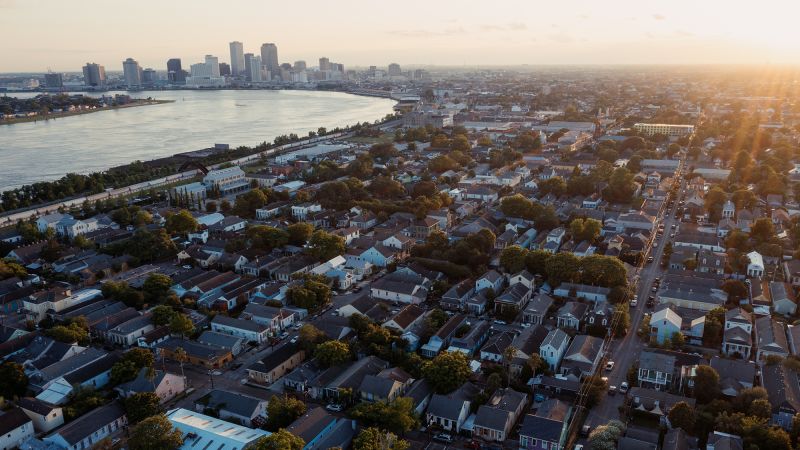The home insurance market is crumbling in New Orleans, leaving Alfredo Herrera with few options for coverage — and skyrocketing insurance premiums.
Herrera, 35, works in finance for a local bank. He bought his 900-square-foot home in New Orleans’ Mid-City neighborhood in 2020 for $270,000, and lives there with his partner.
In 2022, he paid $1,600 a year for home insurance. But last July, his insurer canceled his coverage, saying it was leaving Louisiana.
In the past, acquiring or keeping homeowners’ insurance didn’t present much of a problem.
But as climate change increases the frequency and severity of extreme weather, insurers — especially those in areas most impacted by floods and fires — are raising their premiums, or pulling out altogether, impacting the affordability and availability of home and fire insurance.



Hot take: all severe/extreme-risk flood zone properties should be immediately rezoned to disallow residential use. Current residents would be able to stay where they are, however any flood zone property put up for sale should be sold for either recreational or agricultural use, otherwise acquired by the government to be restored to a riparian ecosystem. Better to take the financial hit of property value decrease now and start dismantling high-risk development than realize the loss suddenly after the next big flood washes the entire neighborhood away. Additionally, creating more dedicated wetlands may even mitigate how far-reaching that next flood is and help protect properties that would have otherwise gotten inundated.
I think a major problem with this approach is that many of the people that’ll be displaced are poor and devaluing their land before kicking them out is only going to make that worse. I also think rebuilding homes in areas where it’s going to get demolished again by another storm in 5 years is yet another terrible approach.
Perhaps it’s best to let them get an insurance payout for their home and then gently nudge them into taking that cash and moving somewhere else.
That’s why I included the option to sell to the government (kind of like a voluntary eminent domain program).
They did that in a few towns that were made unlivable from toxic waste or other disasters. Love canal, times beach, Centralia
How do you plan to arrange that insurance payout. You sure can’t on the open market. Why should uncle sam buy them for more than they are in fact worth when the majority of them were built poorly situated. The flood plain didn’t materialize thereafter it just got more problematic.
Insurance does not want to pay and will find any way not too. My grandparents house flooded in Katrina along with mine and the rest of my family’s and 90% of the rest of the parish and my grandparents never saw a red cent from the insurance they faithfully paid because of some technicality on the way that the house flooded.
A lot of people have already moved north across the lake and into Mississippi but people are getting complacent and building million dollar homes on multiple lots that have been abandoned since Katrina.
I mean, you can make houses flood-resistant. It costs more, but it’s not new technology.
https://en.wikipedia.org/wiki/Stilt_house
That doesn’t really work, if you might lose the beach under your stilts. It’s probably still better to manage getting people out of an area that needs it, rather than paying g for another temporary solution
Just YouTube some news pieces about climate change and Grand Isle, those turds literally have said they aren’t going anywhere till the last piece of land is underwater. Literal hubris of man.
I guess no one wants to leave their home, but it’s crazy to stay there, and it’s well past the point where they shouldn’t have a choice
I mean, if idiots want to live there and own the property, that’s on them. But those are the same people who vote red and I 100% believe that when push comes to shove and they lose everything (again) they’ll be looking for government assistance.